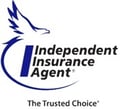 Often when the topic of reducing workers compensation (WC) insurance costs comes up, pharmaceutical costs are the focus. That’s no surprise when you consider that the “total workers’ comp annual pharmacy spend is approximately $3.6 to $4.1 billion,” according to a CompPharma Survey.
Often when the topic of reducing workers compensation (WC) insurance costs comes up, pharmaceutical costs are the focus. That’s no surprise when you consider that the “total workers’ comp annual pharmacy spend is approximately $3.6 to $4.1 billion,” according to a CompPharma Survey.
Looking at pharmaceutical costs is a great place to start if you want to control WC spending without sacrificing the quality of medical care your injured workers are receiving.
Here are 5 Steps to Help You Save
#1. Educate yourself, providers, and patients about pharmaceutical options
For example:
- Lidocaine gel or cream - an anesthetic that is used to treat irritation, soreness, and itching from certain skin conditions - is about half the cost of Lidoderm – a lidocaine patch.
- The average cost of Evzio - a prescription medicine used for the treatment of an opioid emergency such as an overdose - is $3,380.69 higher than the combined price of Narcan, Naltrexone, and Naloxone (alternatives to Evzio), according to Express Scripts.
- Before approving an ADF (Abuse-Deterrent Formulations), which are not typically included in WC formularies, determine if the patient is at risk of abuse and if a more traditional (and often less expensive) opioid may be safe for them.
#2. Use generic instead of brand-name medication whenever possible
On average, the cost of a generic drug is 80 to 85 percent less than its brand name equivalent. According to the Federal Drug Administration (FDA), “FDA requires generic drugs to have the same active ingredient, strength, dosage form, and route of administration as the brand-name drug. The generic manufacturer must prove its drug is the same (bioequivalent) as the brand-name drug.” According to Express Scripts, prescribers often turn to brand-name medications out of “habit, lack of awareness of available alternatives, or patient requests.”
#3. Avoid physician-dispensed drugs
First, there is the concern that – due to incomplete drug histories and lack of safety checks – physician-dispensed drugs may not be safe for injured workers. Some states have rules in place for pricing and dispensing of physician-dispensed drugs, and, according to Express Scripts, “Physician-dispensed drugs cost $109.19 more than drugs dispensed by pharmacies.”
#4. Stay with in-network pharmacies
Prescriptions that are filled through third-party billers or out of network pharmacies are more expensive because they incur additional costs and do not add any value, according to Express Scripts
#5. Closely review prescriptions for specialty medications
The cost of specialty drugs is less than 1 percent of drugs used by injured workers, but accounted for 5.9% of total spending in 2016, according to Express Scripts.
Opioid Prescriptions: the Most Expensive and Most Utilized Class of Drugs in WC
Express Scripts reports that more than 50 percent of injured workers had an opioid prescription last year and 25 percent used opioids for 30 days or more in 2016. Opioids accounted for 26.6 percent of per-user-per-year (PUPY) spend and 24.3 percent of PUPY utilization among Express Scripts clients.
And it isn’t just the financial cost of opioids that make it a critical topic; it’s also the human cost of the opioid epidemic. The number of overdose deaths involving opioids (both prescription opioids and heroin) quadrupled since 1999, and today ninety-one Americans die every day from an opioid overdose, according to the Center for Disease Control and Prevention.
Some injured workers are taking a dangerous combination of opioids and other drugs. Opioids should be used based on evidence-based guidelines in acute phases of pain, not for chronic pain. It’s essential that injured workers understand the risks and benefits of opioids.
For more information on the opioid epidemic and the impact on insurance costs, see our infographic.
Approved Drugs for Workers Compensation Insurance
Several states have adopted legislation mandating a drug formulary - a list of prescription drugs created by a committee of physicians, nurse practitioners, and pharmacists used by practitioners to identify drugs that offer the greatest overall value – for workers’ compensation. In Pennsylvania, there is a bill in the House requiring drug formulary for WC as of this writing.
Call Us for More Information, and to Save on WC Insurance!
 A little bit of knowledge goes a long way to saving money on your WC Pharmacy spend without risking the health of your injured employees, and since American Insuring Group specializes in workers compensation insurance, we’re a fountain of knowledge.
A little bit of knowledge goes a long way to saving money on your WC Pharmacy spend without risking the health of your injured employees, and since American Insuring Group specializes in workers compensation insurance, we’re a fountain of knowledge.
Give us a call at (800) 947-1270 or (610) 775-3848, or contact us online. Pick our brains and let us show you how we can help you lower your workers comp insurance costs!







